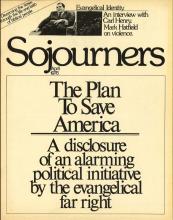In director Martin Scorsese’s earlier movie Mean Streets, the main character puts his finger through the flame of a candle in church, contemplating what hell must be like.
The opening scenes of Taxi Driver take us through the lurid, neon-smeared colors of New York City on a rainy night. Steam comes out of a manhole as the taxi drives by a menagerie of New York City low life. The taxi driver, Travis Bickle, doesn’t have to ask what hell is like -- it is a man-made hell that Bickle feels demands a final judgment. As he drives he muses, “All the animals come out at night. Some day a real rain will come and wash all the scum off the streets.”
Through his glass window Travis sees the possibility of another world embodied in the cool impeccable person of Betsy (Cybill Shepherd), a campaign worker for a presidential hopeful. Travis manages to take her out for coffee. “Where are you from?” he asks her. “Upstate,” she answers crisply. The word separates them finally and completely.
Read the Full Article

